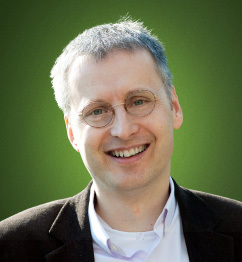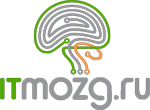Viktor Mayer-Schonberger

Big Data Revolution
December 02, 2013 | 20:00
Why do orange cars break down less frequently than other kinds? On December 2nd, the Oxford Internet Institute-based coauthor of Big Data, offered a lecture at the Digital October Center in which he discussed how 'raw' masses of data can help us to find the ideal solutions to business, industrial, and everyday problems.
On December 2nd, the Digital October Center hosted a live link-up lecture with Viktor Mayer-Shönberger, an Oxford Internet Institute professor who studies the role of information in the network economy.
He has consulted for companies (including Microsoft), governments, and international organizations (including the World Economic Forum) on issues of online legal regulation. He gained international fame for his assertion that the Internet has to learn to forget, which is to say, that people should have the right to delete information about themselves after a certain period of time.
He made this claim in the book Delete: The Virtue of Forgetting in the Digital Age (2009), and it has not only earned him two major literary prizes, but the attention of Old World politicians as well: some of the author’s ideas were taken into consideration by EU leadership.
The expert’s noteworthy reputation was further strengthened by his book Big Data: A Revolution That Will Transform How We Live, Work, and Think, coauthored with Kenneth Cukier, Data Editor of The Economist. This book, which was released in English this year, is currently being prepared for Russian publication.
Using real life examples from a the experiences of a major American logistics company, Canadian doctors who have learned to predict illnesses in the early stages of pregnancy, the life story of Google Translate, and other examples to illustrate their research, they examine big data as a new form of practical science that can be used to society’s advantage, as well as to its detriment.
By way of illustration, they offer a whole slew of ways in which humanity could develop in the era of big data, and they’re not always positive: for example, in one of these scenarios, we see mass imprisonment for thought crimes.
The major conclusion that Viktor and Kenneth reach is as follows: the opportunity to analyze current and future situations that is offered by the momentary processing of unstructured supermasses of raw data will soon forge a revolution comparable to the advent of the Internet – moreover, that revolution will take place both in individual human consciousness and in government activity.
During the interactive portion of this Knowledge Stream event, Viktor examined big data from four points of view:
- big data's new way of thinking: more, messy, correlations
- big data's new economic value
- big data's winners and losers – and what are the key ingredients to success
- big data's dark sides – and how to constrain them
Admission to this event was free thanks to our project’s general partner, Rostelecom.
POST-LECTURE DISCUSSION PARTICIPANTS
-

Mircea Florin Mihaescu
Sberbank Technology Research Center Director
-

Vadim Tabakov
Database&Technology Development Manager, SAP
-

Sergey Matsotsky
Board of IBS IT Services, Chairman
-

Ivan Novoselov
Head of Information Management, Russia, EMEA, IBM




































